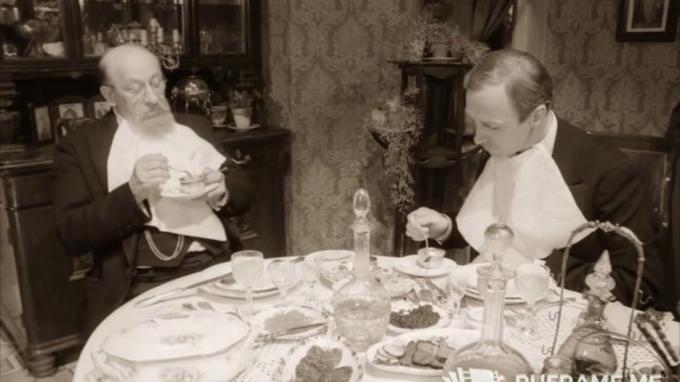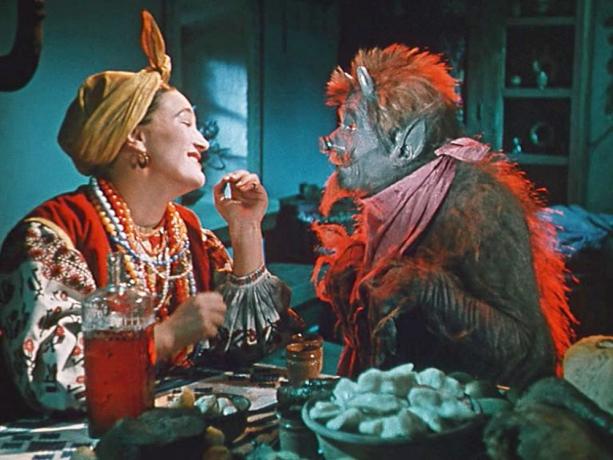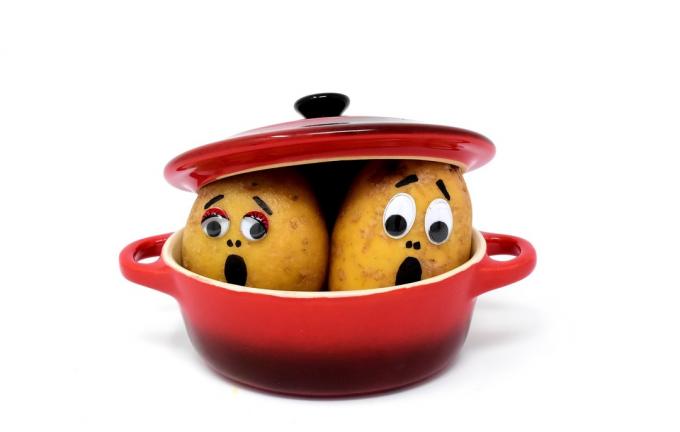Content
- 1 Culture
- 2 Range
Culture
The first thing that came to my mind was the lunch of doctors from Bulgakov's "heart of a dog". In my opinion, this is the brightest scene about eating in Russian classics. In this scene, the details of the culture of the time are clearly visible. In general, the entire work points to the loss of culture, to the detrimental influence on it that has come to replace the political system. And the passage "lunch" vividly emphasizes the individual details that the culture was losing in those days. This is especially indicated by the professor's phrase regarding hot and cold snacks.
The professor believes that you need to eat hot snacks, from the way he stops the doctor not allowing eat black caviar, one gets the impression that the professor, a true esthete, luxury and high cost prefers taste. In contrast to this passage, there is later a dinner scene with Sharikov's presence. By comparing these two passages, you can understand the essence of the whole work.

Scene in the dining room, film "Heart of a Dog"
Range
In Russian literature, eating scenes were largely used to characterize the characters in general, and since gluttony is a sin, then if the character is negative, overeating and lack of culture in nutrition.
If we talk about diversity, it is best to pay attention to Gogol, for example, an excerpt from "evenings on a farm near Dikanka"
“But as soon as you come to visit, then we will serve melons such as you have never eaten when you were old; but honey, I’ll worry, you will not find better on the farms. Imagine that, as you bring in the honeycomb, the spirit will go through the whole room, it is impossible to imagine what it is: pure, like a tear or dear crystal that happens in earrings. And what pies my old woman will feed! What a cake if you only knew: sugar, perfect sugar! And the oil just flows down your lips when you start eating.
Have you ever drank, gentlemen, pear kvass with thorns or dumplings with raisins and plums? Or has it happened to you sometimes to eat mud with milk? My God, what dishes are there in the world! When you eat it is delicious, and it’s full. ” Such a variety, I do not seem to have met.

Scene from the film "Evenings on a Farm near Dikanka"
But in the film, it caught my eye, there were dumplings on almost every table. The dumplings, it seems, turned out to be a character in the film, and they also thwarted the audience award. It is difficult to find a person who does not remember the fragment with dumplings flying into his mouth.
Unless you can read Melnikov (Pechersky) "In the Woods" and "On the Mountains" where we are talking about food in about half of the work.

fragment from the film "In the Woods"
The most beautiful descriptions in poetry, in my opinion, belong to Pushkin. Here, for example, is an excerpt from Eugene Onegin
Entered: and a cork in the ceiling,
The comet's fault spurted the current
Before him is a bloody roast-beef,
And truffles, the luxury of a young age,
French food is the best color,
And Strasbourg imperishable pie *
Between the cheese of Limburgian living
And golden pineapple.
Perhaps it seemed to me that the description in verse is more beautiful and stronger than the stills from the film. And it costs something when the textual description is stronger than the image.

The table at one of the balls in "Onegin" and more beautiful tables were not found there

